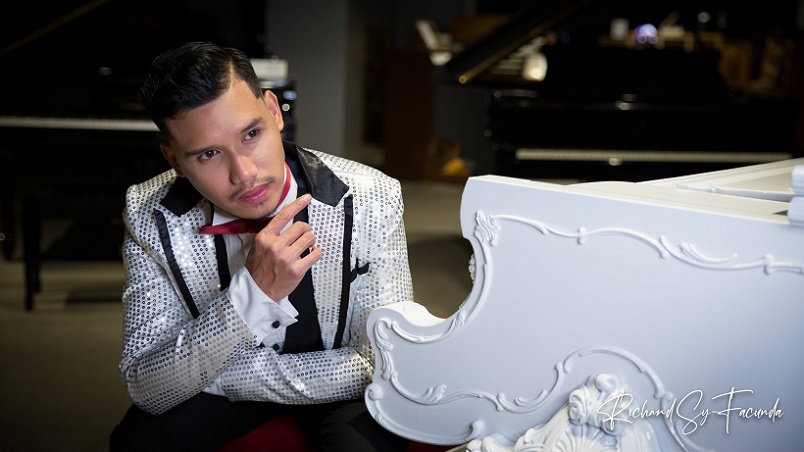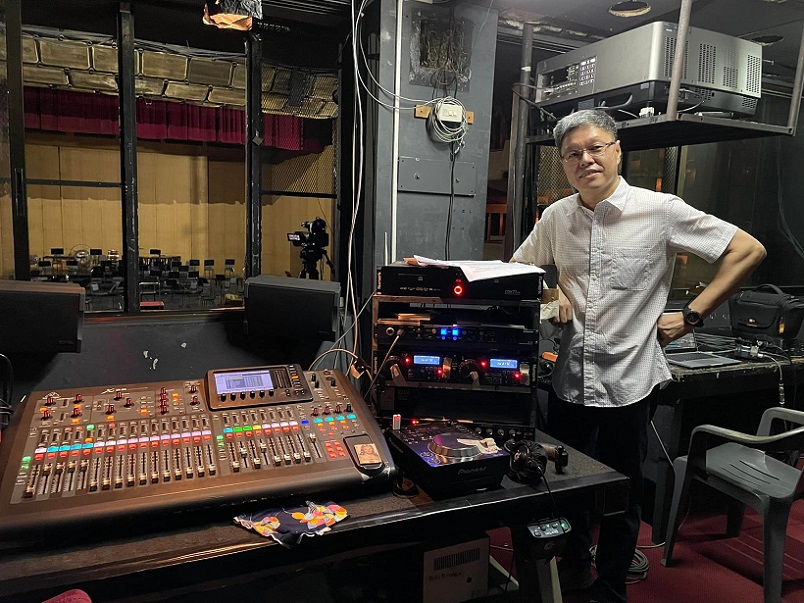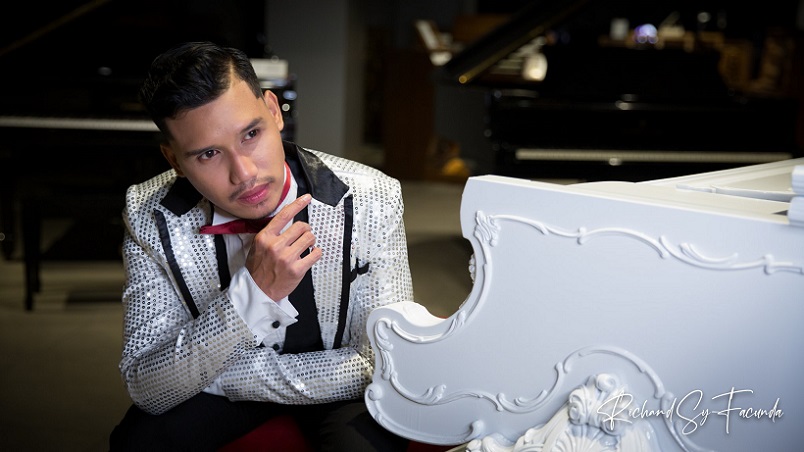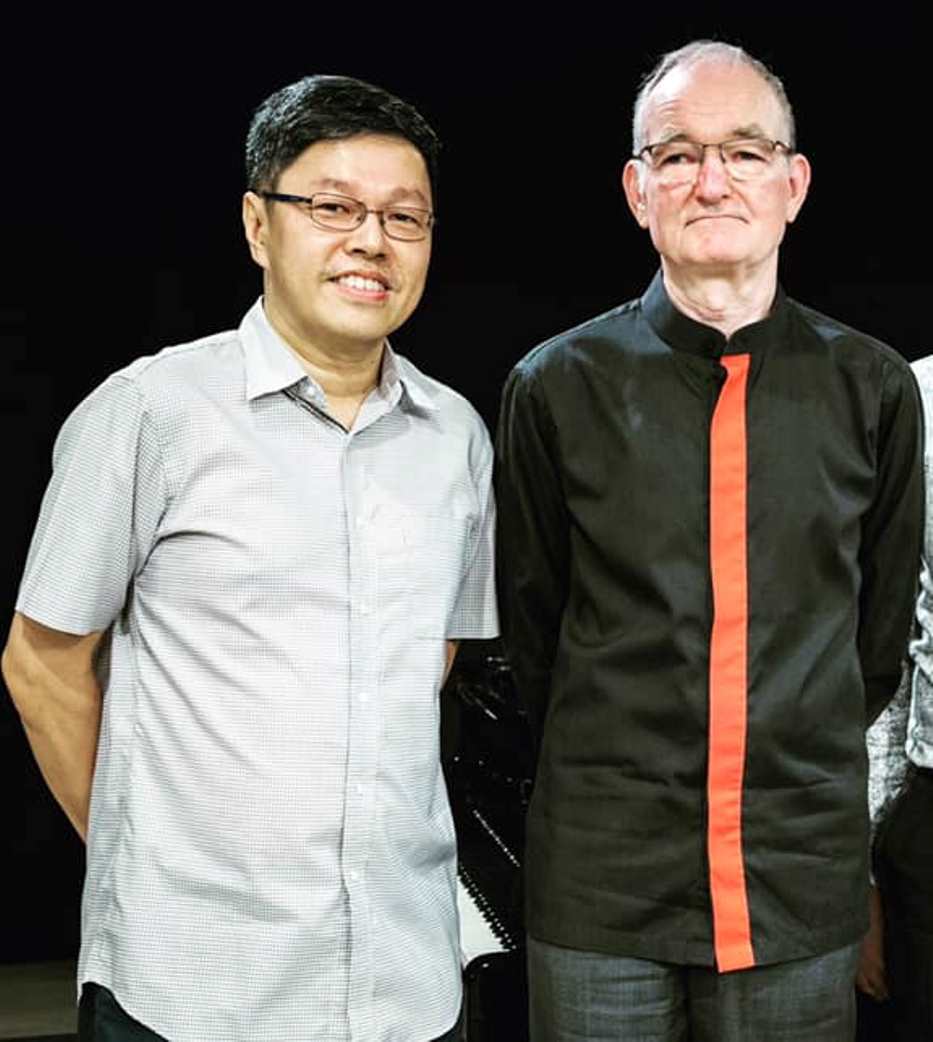Richard Sy-Facunda – the man behind the highly patronized Manila Pianos Artist Series — fell in love with classical music when he found himself listening to vinyl records given by friends during his high school years.
His love for the arts was further reinforced with his frequent trip to Goethe Institut after his classes at Xavier school. Then he had short stints with Yamaha Electone organ classes but stopped when his college studies began.
Richard Sy-Facunda has presented over 65 concerts — live and online — in his concert series with the Manila Pianos showroom as his modest venue since 2019.
His latest offering happens in the same venue Sunday, July 24, 2022 at 6 p.m. featuring countertenor Mark Joshua Fabic Morales with Thea Perez, soprano, Job Polvoriza, cello and Heliodoro Fiel II (Dingdong), piano.

Looking back on the year he started his cultural endeavor in 2019, the idea came to him while checking the grand pianos at the Manila Pianos showroom. “I noticed that the acoustics of the showroom were good. I had inquired with the manager of the store if they were into collaborations and they told me to write Gina Ronquillo. I gathered independent music schools used the venue for their school recitals.”
His series began in the last quarter of 2019 with several musicians among them pianist Dingdong Fiel and flutist Immanuel Nico Dioneda in an evening of French music for flute and piano. “I had requested Fiel and Dioneda to play Bolling’s Concerto for Flute and Jazz Piano trio – a favorite of mine way back in high school. It was followed by concerts featuring the complete Beethoven violin sonatas. I don’t think it has ever been done in Manila. Not only that, the ten violinists were taken from the emerging batch of classical musicians in the country. Then the Bach festival happened and the complete solo keyboard concertos recorded. The concertos for violin with the Pundaquit Virtuosi are scheduled for August while the complete Unaccompanied Cello Suites have been set for a series of live recitals in September.”
With the theaters closed during the pandemic and live music making on hold, he knew that performing artists were in for tough times. “One of the goals we set for the creation of the artist series was to bridge the gap for performers and performance venues. For the musicians, I found a disparity between the established ones and the majority who, in spite of their innate talent, wouldn’t have enough resources to book a concert venue such as the CCP, Ayala Museum or the other commercial venues. Much like a flour sifter, the holes are too big and these musicians are left playing in community brass bands or worse shifting to non-music related jobs just to make ends meet. The pandemic of course made it a lot worse. Musicians were left without gigs – weddings, birthdays, fiestas and the like. Some even resorted to selling their musical instruments!”
He imposed the basic requirements when screening artists for the series. “They have to submit a program of around 45 minutes. The pieces must have a uniting theme – which often enough become the title for the concert. From there, we tweak the program. We refrain from presenting the same musical piece especially if the instrumentation is the same. I would revise the program if I sense that has the looks of a student recital.”
From concert series, he also endeavored to host masterclasses. “We started the masterclasses this year when Alexander Tchobanov came to visit Manila. Since the Covid cases were low, we were allowed by the building to have more people on the floor. Normally, we would record chamber music without an audience and that would be limited to about 3 to 4 pax. The feedback from the music community was astounding. One teacher told me that since it has been two years since any masterclass was done face-to-face, students readily grab these opportunities.”
The latest was the masterclasses of pianist Jovianney Emmanuel Cruz. Next is that of Dingdong Fiel on July 27 and 28. “We can learn a lot from these seasoned artists. I am very glad that they are sharing it with the new generation of classical musicians in the country,” he said.
Mounting concerts during the pandemic had its extreme challenges. “The biggest challenge was scheduling. Since we book the recordings way ahead, we never really know what the Covid situation will be in the coming months. The Bach Piano Concertos project, for example, was supposed to be recorded last quarter of 2021 but had to be postponed several times due to surging Covid cases. Some of the musicians also caught the virus thus the need to reschedule.”

As it is, Facunda is a one-man concert presentor. He records with his own equipment, mixes and produces the final master video and design the posters from his own photoshoot. Indeed, that saved him a lot of money.
With good results in the last three years, he derives fulfillment from the artists extremely happy to be able to make music and see live audiences during the health crisis.
For him, making money out of what he does is out of the question.
“I see this more as an apostolic mission rather than a business venture. There are a lot of things that have to improve in the arena of classical music in the Philippines. The way that classical music is recorded, the way musicians come up with their programs and even the quality of pianos being used for performance. A lot of things can stand improvement,”he said.
He might as well be describing how classical musicians survive in this country.
(The July 24 program of the Manila Artists Series featuring tenor Mark Joshua Fabic Morales with soprano Thea Perez, cellist Job Polvoriza and pianist Dingdong Fiel include Franz Schubert’s Ave Maria, George Frederick Handel’s Ombra mai fu, Antonio Vivaldi’s Vedró con mio diletto, Jacques Offenbach’s Belle nuit, ô nui d’amour, Gioachino Rossini’s Duetto buffo di due gatti (Cat Duet), George Frederick Handel’s Lascia ch’io pianga and Piangerò la sorte mia, Riccardo Broschi’s Ombra fedele anch’io and Nicola Porpora’s Alto giove, Riccardo Broschi’s Son qual nave, Leopoldo Silos’s Lagi Kitang Naaalala and Santiago Suarez’s Katakataka.)

